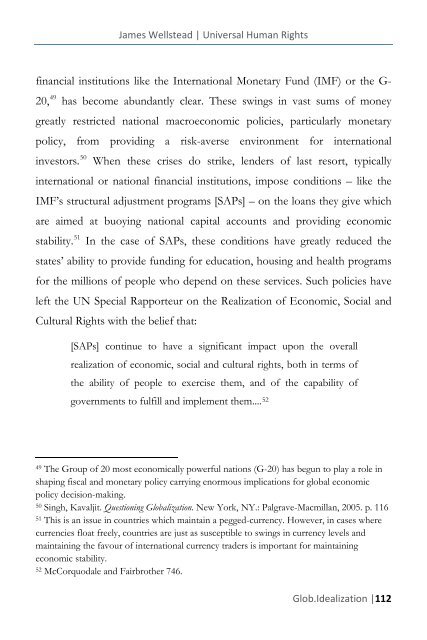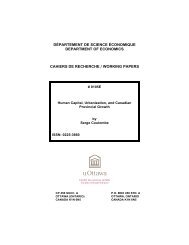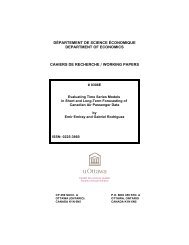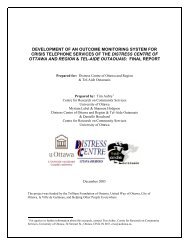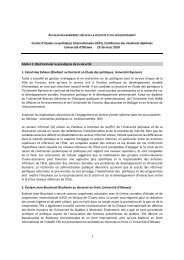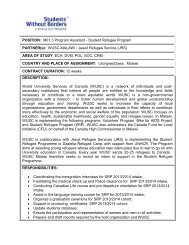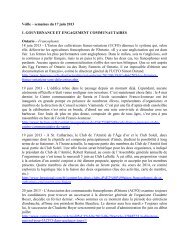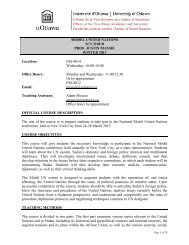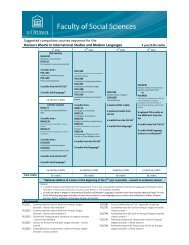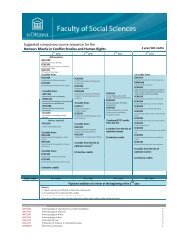GLOB.IDEALIZATION MOND.IDÉALISATION - Faculty of Social ...
GLOB.IDEALIZATION MOND.IDÉALISATION - Faculty of Social ...
GLOB.IDEALIZATION MOND.IDÉALISATION - Faculty of Social ...
Create successful ePaper yourself
Turn your PDF publications into a flip-book with our unique Google optimized e-Paper software.
James Wellstead | Universal Human Rights<br />
financial institutions like the International Monetary Fund (IMF) or the G-<br />
20, 49 has become abundantly clear. These swings in vast sums <strong>of</strong> money<br />
greatly restricted national macroeconomic policies, particularly monetary<br />
policy, from providing a risk-averse environment for international<br />
investors. 50 When these crises do strike, lenders <strong>of</strong> last resort, typically<br />
international or national financial institutions, impose conditions – like the<br />
IMF’s structural adjustment programs [SAPs] – on the loans they give which<br />
are aimed at buoying national capital accounts and providing economic<br />
stability. 51<br />
In the case <strong>of</strong> SAPs, these conditions have greatly reduced the<br />
states’ ability to provide funding for education, housing and health programs<br />
for the millions <strong>of</strong> people who depend on these services. Such policies have<br />
left the UN Special Rapporteur on the Realization <strong>of</strong> Economic, <strong>Social</strong> and<br />
Cultural Rights with the belief that:<br />
[SAPs] continue to have a significant impact upon the overall<br />
realization <strong>of</strong> economic, social and cultural rights, both in terms <strong>of</strong><br />
the ability <strong>of</strong> people to exercise them, and <strong>of</strong> the capability <strong>of</strong><br />
governments to fulfill and implement them.... 52<br />
49 The Group <strong>of</strong> 20 most economically powerful nations (G-20) has begun to play a role in<br />
shaping fiscal and monetary policy carrying enormous implications for global economic<br />
policy decision-making.<br />
50 Singh, Kavaljit. Questioning Globalization. New York, NY.: Palgrave-Macmillan, 2005. p. 116<br />
51 This is an issue in countries which maintain a pegged-currency. However, in cases where<br />
currencies float freely, countries are just as susceptible to swings in currency levels and<br />
maintaining the favour <strong>of</strong> international currency traders is important for maintaining<br />
economic stability.<br />
52 McCorquodale and Fairbrother 746.<br />
Glob.Idealization |112


